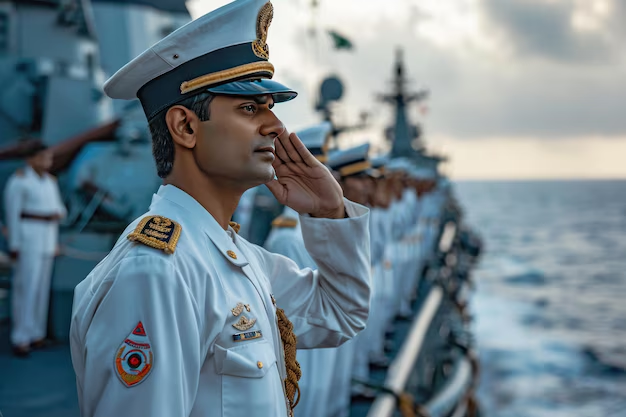How To Become A Deck Officer In Merchant Navy?

How To Become A Deck Officer In Merchant Navy
Becoming a deck officer in the Merchant Navy is a rewarding career path that offers numerous opportunities for travel, adventure, and professional development. This guide will outline the steps necessary to embark on this journey, including educational requirements, training programs, and career progression.
Understanding the Role of a Deck Officer
Deck officers play a critical role in the operation of a ship. They are responsible for navigating the vessel, managing cargo operations, ensuring safety protocols are followed, and maintaining communication with other crew members and authorities. The hierarchy within the deck department typically includes positions such as:
- Deck Cadet: Entry-level position for trainees.
- Third Officer: Responsible for watchkeeping and safety equipment.
- Second Officer: Takes on more responsibilities in navigation and cargo operations.
- Chief Officer: Manages the deck department and oversees all deck operations.
- Captain (Master): Ultimate authority on the ship, responsible for its safe operation.
Educational Pathways
There are several pathways to becoming a deck officer, primarily through formal education and training programs. Below are the most common routes:
1. University Courses
Many aspiring deck officers begin their careers by enrolling in maritime colleges or universities that offer specialized programs. Some popular courses include:
- Bachelor of Science in Nautical Science: A three-year degree program that covers navigation, seamanship, marine engineering, and maritime law.
- Diploma in Nautical Science: A one-year course followed by an 18-month sea training period. This program is designed for those looking to enter the industry quickly.
- B.S. Nautical Technology: A four-year program that includes three years of academic study followed by one year of onboard training. This course is offered by select institutions in India.
To enroll in these programs, candidates typically need to have completed their higher secondary education (12th grade) with a focus on subjects such as Physics, Chemistry, and Mathematics. Most institutions require a minimum percentage (often around 60%) in these subjects.
2. Pre-Cadetship Courses
For those who may not meet direct entry requirements for officer training programs, pre-cadetship courses are available. These programs last about one year and prepare candidates for further studies in nautical science or marine engineering.
3. Apprenticeships
Another pathway is through an apprenticeship as an able seafarer (deck). This route usually takes around 18 to 24 months and combines practical sea experience with theoretical training. After gaining sufficient experience, apprentices may be sponsored by their employers to transition into officer training.
4. Direct Application
Individuals with relevant experience from other maritime sectors or those who have served in the Royal Navy may apply directly to shipping companies for cadet positions. However, they will still need to complete the necessary training and obtain sponsorship from a maritime company.

Entry Requirements
To pursue a career as a deck officer, candidates must meet specific entry requirements:
- Educational Qualifications: Generally, candidates need at least 1 or 2 A levels or equivalent qualifications for foundation degrees or higher national diplomas. For degree programs, 2 to 3 A levels are usually required.
- Medical Standards: Candidates must pass medical examinations to ensure they meet physical fitness standards required for seafaring roles.
- Age Limitations: Most maritime institutes set age limits for applicants; typically, candidates should be between 17 to 25 years old when applying.
Training and Certification
Once enrolled in a maritime program, students undergo both theoretical education and practical training at sea:
- Onboard Training: This is crucial for gaining hands-on experience in navigation, cargo operations, safety management, and emergency procedures.
- Examinations: After completing their studies and required sea time (usually around 12 months), cadets must pass examinations conducted by relevant maritime authorities (e.g., Director General of Shipping in India) to obtain certification as a third officer.
- Progression through Ranks: After becoming a third officer, individuals can work towards promotions by accumulating sea time and passing additional examinations to become second officers and eventually chief officers.
Career Progression
The career trajectory for deck officers can be quite dynamic:
- Third Officer: Newly qualified officers typically start here, handling watchkeeping duties at sea and operational tasks in port.
- Second Officer: After gaining experience and passing necessary exams, third officers can advance to this position with increased responsibilities related to navigation and cargo operations.
- Chief Officer: With further experience and examinations (including those related to ship management), second officers can become chief officers who oversee all deck operations.
- Captain (Master): The ultimate goal for many deck officers is to achieve the rank of captain. This requires extensive experience at sea (usually several years) along with successful completion of advanced examinations.
Skills Required
To succeed as a deck officer, individuals must possess certain skills:
- Leadership Abilities: Deck officers often lead teams onboard ships and must inspire confidence among crew members.
- Communication Skills: Effective communication is vital for coordinating operations and ensuring safety on board.
- Problem-Solving Skills: Officers must be able to make quick decisions under pressure during emergencies or unexpected situations.
- Technical Knowledge: A strong understanding of navigation systems, safety equipment, and marine engineering principles is essential.
Challenges Faced
Working as a deck officer comes with its unique set of challenges:
- Long Periods at Sea: Officers may spend several months away from home due to long voyages.
- Work Environment: The job involves working in various weather conditions and can sometimes be physically demanding.
- Responsibility: The safety of the vessel and crew rests heavily on the shoulders of deck officers, which can be stressful at times.
Opportunities Beyond Sea Service
Qualified deck officers have numerous opportunities beyond traditional seafaring roles:
- Shore-Based Positions: Many shipping companies recruit former deck officers for roles such as marine superintendents or fleet operations staff on land.
- Training Roles: Experienced officers may also transition into teaching positions at maritime academies or training centers.
- Consultancy Roles: With sufficient experience, some may choose to work as consultants or surveyors for maritime organizations or insurance companies.
Conclusion
Becoming a deck officer in the Merchant Navy is an exciting career choice that offers diverse opportunities for growth and advancement. By following the outlined educational pathways and gaining practical experience at sea, aspiring candidates can successfully navigate their way through this rewarding profession. With dedication and perseverance, they can achieve their goal of becoming skilled maritime professionals capable of commanding vessels across the world’s oceans.




